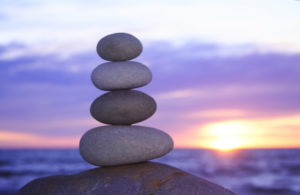“He is a wise man who does not grieve for the things which he has not, but rejoices for those which he has.” –Epictetus
“Be thankful for what you have; you’ll end up having more. If you concentrate on what you don’t have, you will never, ever have enough.” –Oprah Winfrey
 Gratitude is an important practice for optimal well-being. It helps us to appreciate what we have, instead of focusing on what we don’t have. Research studies have demonstrated that people who cultivate a sense of gratitude have lower levels of stress and depression, higher levels of empathy, generosity, and helpfulness, and are generally more satisfied with life.
Gratitude is an important practice for optimal well-being. It helps us to appreciate what we have, instead of focusing on what we don’t have. Research studies have demonstrated that people who cultivate a sense of gratitude have lower levels of stress and depression, higher levels of empathy, generosity, and helpfulness, and are generally more satisfied with life.
Robert Emmons and his colleagues have been studying the nature of gratitude and its potential impact for human health and well-being for the past decade. In addition to the above effects, their studies indicate that people who adopt a daily gratitude practice have more high energy positive moods, a greater sense of feeling connected to others, better sleep quality and duration, and higher reported levels of alertness, enthusiasm, determination, attentiveness and energy compared to control groups that focused on hassles or social comparison (ways in which participants thought they were better off than others). Those who kept weekly gratitude journals exercised more regularly, reported fewer physical symptoms, and were more optimistic about the future compared to those who recorded hassles or neutral life events. The researchers also noticed that participants who kept gratitude lists were more likely to have made progress toward important academic, interpersonal and health-based goals over a two-month period compared to those who did not make gratitude a focus of their attention.
Sarah McLean describes how to make a gratitude list in her book, Soul Centered: Transform Your Life in 8 Weeks with Meditation. She writes about how difficult it can be to think of things to be grateful for when experiencing challenging life circumstances and points out that gratitude is even more essential when we are suffering, because it can transform our perspective about difficult situations. She suggests that when it is hard to come up with things to put on the list, we can appreciate our ability to perceive the world around us with our senses and how amazing our bodies are at automatically sustaining life through our beating hearts and flowing breath. We can also be grateful for having enough food to eat, a roof over our heads to keep us dry, and clothing to keep us warm. In her gratitude meditation, Sarah McLean also encourages us to appreciate our own positive qualities, such as wisdom, creativity, awareness, stability, flexibility, and love. I would add to the list the qualities of passion, humor, playfulness, determination, perseverance, compassion, and generosity.
It is the 24th day of the Real Happiness Meditation Challenge. Focusing on what I feel grateful for in my daily meditation has helped me to develop greater life balance, fostering a more positive attitude about negative situations. In the course of my life, gratitude has helped me to transform suffering into meaningful growth and purpose. How has gratitude helped you in your life?
